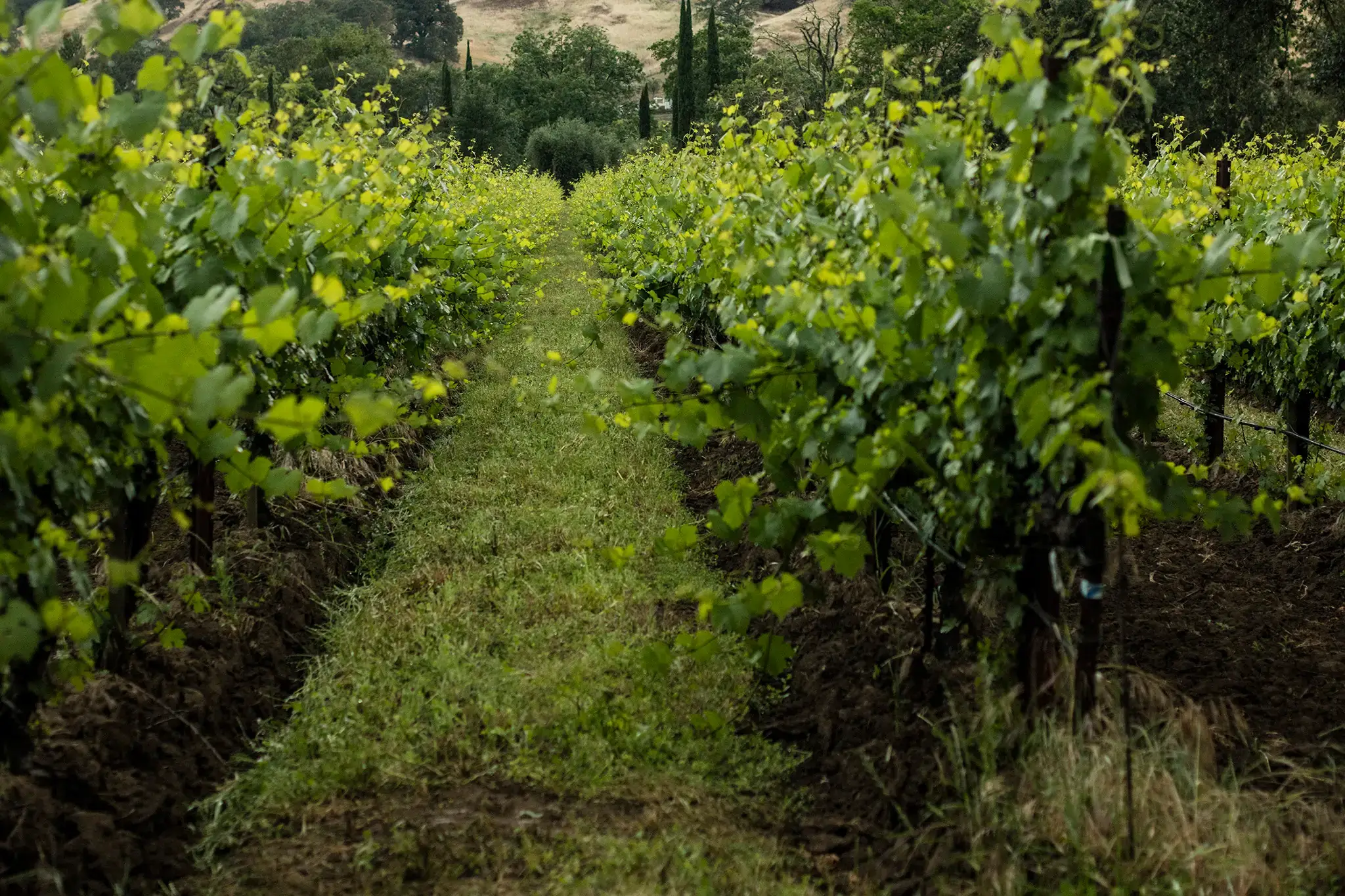
Regenerative Organic Agriculture
Today, Bonterra is the largest winery to achieve the rigorous certification of Regenerative Organic (ROC) by the Regenerative Organic Alliance (ROA). Established in 2017, the ROA is a collective of farmers, business leaders, and experts in soil health, animal welfare, and social fairness.
Regenerative Practices Explained
Enhancing farm, fruit, and soil health while building resilience.
Cover Cropping
Each spring, we plant cover crops between vineyard rows to promote biodiversity, soil fertility, prevent topsoil erosion, and naturally suppress weed growth.
Sheep Grazing
Each winter, we partner with a local sheepherder to bring flocks into our vineyards to graze on weeds while adding natural fertility to the soil.
Compost Application
Following harvest, we compost the pomace (grape skins and seeds) left over from wine production and later reintroduce this material into our vineyards to boost soil health and close the nutrient loop.
Avoiding Synthetic Inputs
We never use harmful synthetic inputs in our vineyards, instead opting for farming methods that foster soil health and natural vitality through integrated pest management.
Reduced/No Tillage
Our team reduces tillage by pursuing a no tillage regime for the row middles that promotes topsoil stability, reduces soil compaction, and decreases greenhouse gas emissions.
Planting for Biodiversity
Around our vineyards, we protect riparian areas and habitat corridors by planting shrubs, fruit trees, and native species that provide homes for beneficial insects and create ecosystem balance.
Principles of Our Approach
Our set of principles guides how we approach regenerative organic agriculture to create the best possible outcomes.
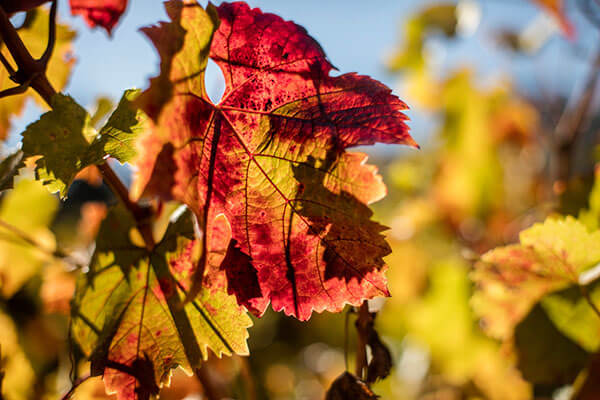
Carbon Reintegration
Reducing our carbon footprint and contributing to sustainability.
As plants die and decompose, the carbon created during photosynthesis can either be stored in the soil or released back into the atmosphere. By minimizing our tilling and using sheep to graze the vineyards, we sequester carbon in the soil.
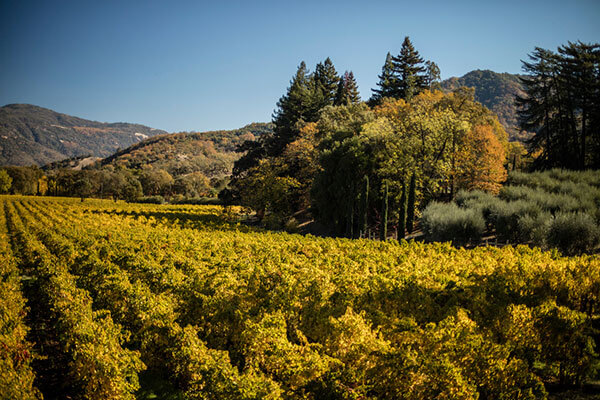
Cover Crops
Creating diversity in form and function.
By planting grasses, legumes, brassicas and herbs as cover crops in our vineyards, we help reduce soil erosion and keep weeds in check naturally. Cover crops are part of a living soil system that eliminates the need for synthetic inputs.
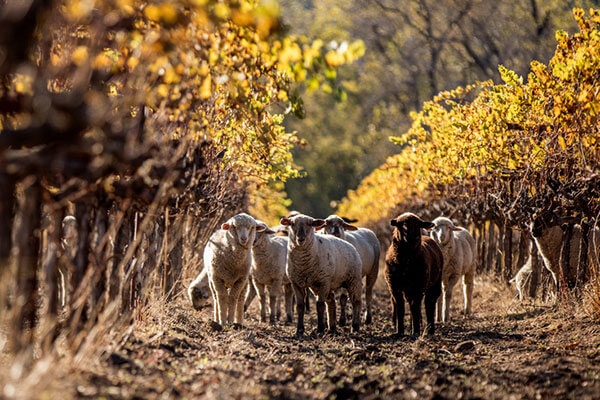
Animal Integration
Appreciating the help of our fellow creatures.
We partner with local sheepherders to bring flocks to our vineyards in the winter where they enjoy grazing on weeds and contributing to the fertility of the soil. The organic matter they add gives our soil a boost and reduces compaction.
Why Regenerative Organic Agriculture?
It’s not just good for the earth, it’s good for our society.
Fair Treatment
Regenerative Organic Certified is a commitment to fair and equitable labor practices, ensuring our vineyard and production workers are treated with respect and fairness. ROC standards mandate equal pay, living wages, good working conditions, no forced labor, and more.
Uplifting Communities
Regenerative organic farming methods contribute to clean air, water, and healthy soils, all of which benefit the farm workers and surrounding communities.
Leading with Purpose
At Bonterra, we seek to cultivate the future through regenerative organic practices, leaving the earth better than we found it.
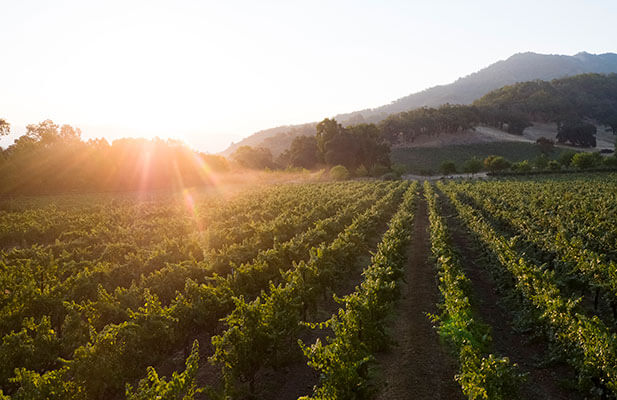
America’s #1 Organic Winery
Every bottle of our wine is made with 100% organic grapes.
Organic farming is the very heart of Bonterra. As America’s #1 organic winery, we’ve long championed organic farming practices in the wine industry and beyond.
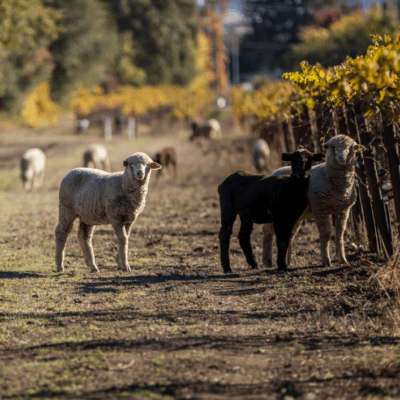
Certified B Corporation
Redefining success in business by being a force for good.
We’re part of a movement of more than 6,000 global companies that meet high standards of social and environmental transparency, accountability, and performance.
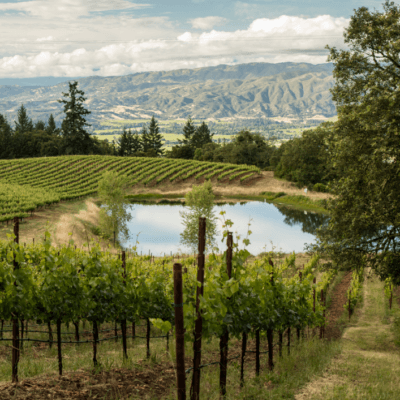
California Certified Organic Farmers
We verify our organic claims through CCOF’s third-party certification.
We started farming organically in 1987. And we feel the same today as we did back then: farming is a two-way relationship with the land.
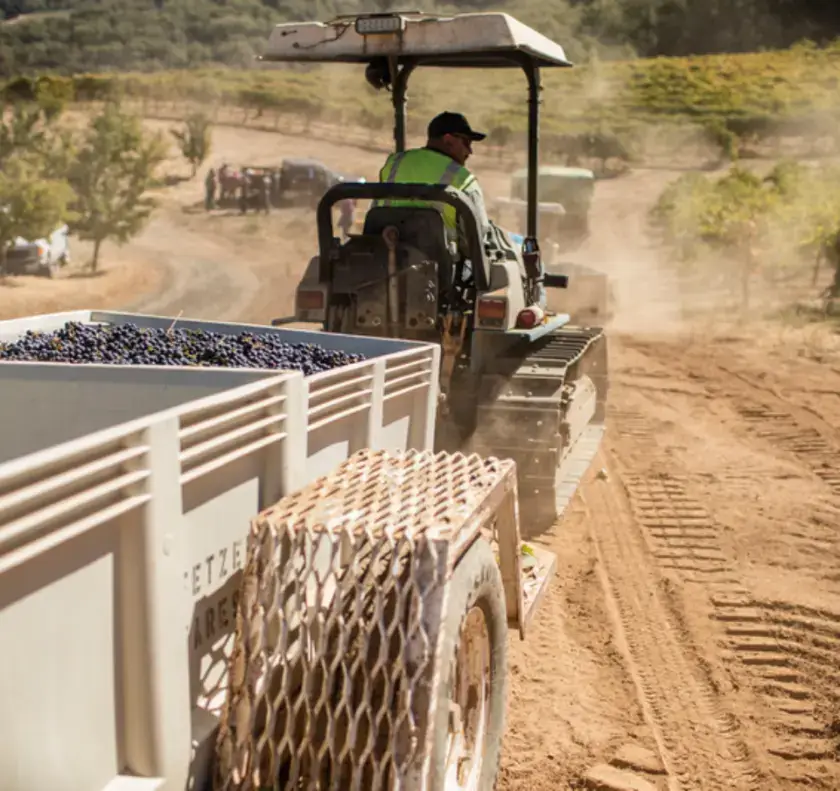
TRUE Zero Waste
Zero waste initiatives help us reduce our ecological footprint.
We divert over 98% of all waste from landfill or incineration. We’re committed to using recycled materials and materials with longer product life cycles to reduce our carbon footprint.

Join Our Journey
Become part of our spirited team committed to making an impact and making a difference.